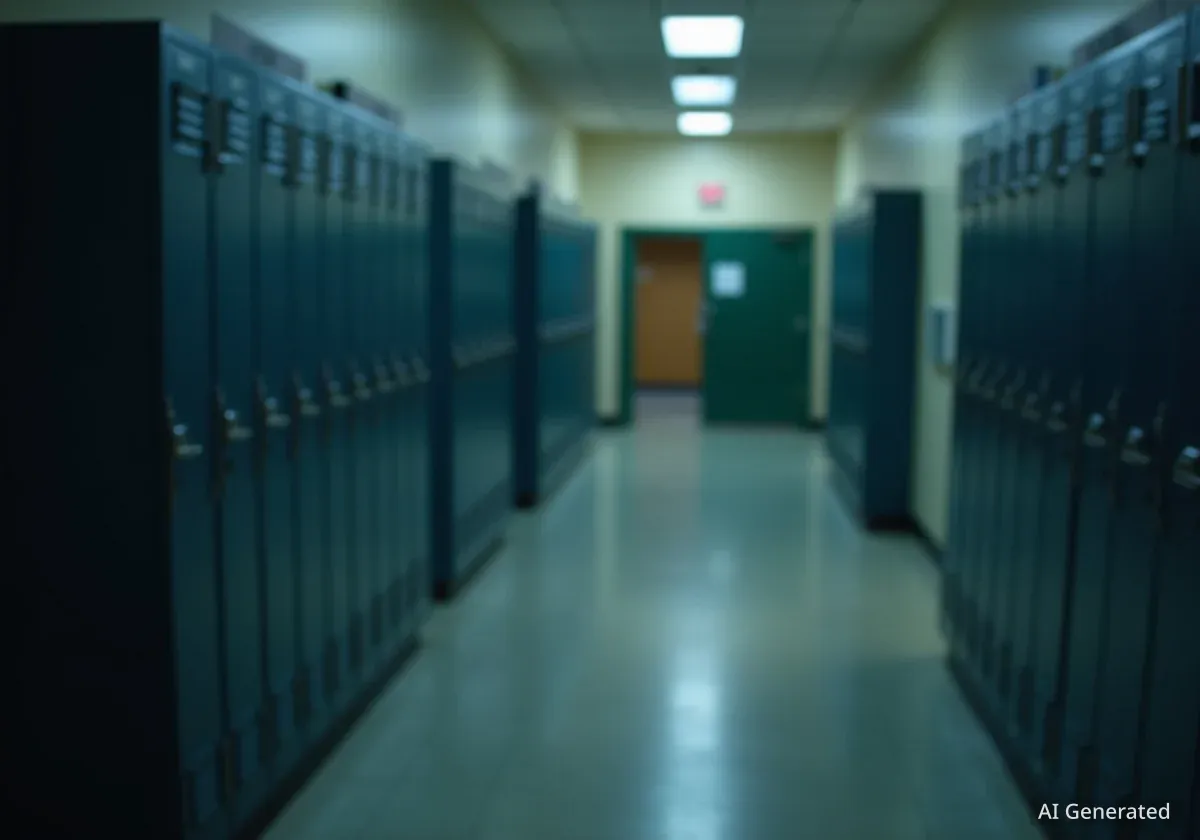The Board of Education for Colorado Springs School District 49 has approved a new resolution that governs access to school facilities such as restrooms and locker rooms. In a 3-to-2 vote on Wednesday night, the board decided that entry into these multi-user spaces will be determined by a person's biological sex.
Key Takeaways
- The District 49 school board passed the resolution with a 3-2 majority vote.
- The policy restricts access to multi-user restrooms, locker rooms, and showers based on biological sex.
- It applies to students, staff, and visitors during all school-related activities.
- All schools in the district will continue to provide single-user facilities as an alternative.
Details of the New Resolution
The policy, approved on September 24, 2025, establishes new rules for gender-segregated spaces across all district properties. According to official school documents, the measure specifically targets multi-user facilities intended for use by a single sex.
These areas include restrooms, locker rooms, changing areas, and shower facilities. The resolution states that individuals will not be permitted to enter spaces that do not correspond with their biological sex at birth. This rule applies, as outlined in the document, "regardless of self-identified gender, presentation, or other factors."
Policy Scope at a Glance
- Affected Facilities: Multi-user restrooms, locker rooms, showers, and similar private areas.
- Affected Individuals: Students, school staff, and visitors on campus.
- Governing Factor: Access is determined by biological sex.
The policy is designed to be comprehensive, covering not only the regular school day but also all extracurricular activities and school-sponsored events. This means the rules will be in effect during sports practices, after-school clubs, and evening events held on school grounds.
The Board's Decision and Vote
The resolution was a topic of considerable discussion before the final vote was cast. The board members ultimately decided the matter with a narrow 3-to-2 margin, reflecting a division on the issue. The passage of this resolution makes District 49 one of several school districts nationwide to enact such a policy.
Policies concerning school facility access have become a focal point for school boards across the country. These discussions often involve complex considerations of student privacy, safety, and inclusivity. The decisions made by boards like District 49's often set a precedent for other local education authorities and can lead to further legal and community debate.
A National Trend in Education Policy
School districts in various states have been debating and implementing policies related to gender and facility access. These local decisions are part of a larger national conversation about the rights and accommodations for all students in public education. The outcomes of these votes can have significant impacts on school culture and daily operations.
Implementation and Accommodations
With the resolution's passage, District 49 will begin implementing the new guidelines across its schools. The administration will be responsible for communicating the policy to students, parents, and staff to ensure clarity and compliance.
A key component of the resolution is the continued provision of alternative facilities. The document explicitly states that each school building will maintain single-user restrooms. These facilities are available to any student who requires or prefers a private space for any reason. This provision is intended to serve as an accommodation for students who may be uncomfortable using the multi-user facilities or for whom the new policy creates a challenge.
Availability of Single-User Facilities
The district has emphasized that single-user options will remain accessible to ensure that all students have a place to use the restroom comfortably and privately. These facilities are often gender-neutral and can be used by one person at a time, offering a solution for various needs, including those of transgender students, students with disabilities, or any individual seeking privacy.
This approach of providing single-stall restrooms is a common practice in schools that have adopted similar facility access policies. It aims to balance the specific regulations for multi-user spaces with the needs of the entire student body. The effectiveness and accessibility of these alternatives will be a critical part of the policy's rollout and ongoing function within the schools.
Community and Legal Context
The decision by the District 49 board reflects an ongoing debate in communities and courtrooms throughout the United States. School facility policies have been the subject of numerous legal challenges, often citing Title IX, the federal law that prohibits sex-based discrimination in education programs receiving federal funding.
The interpretation of "sex-based discrimination" under Title IX is at the heart of the legal debate. Federal guidance and court rulings on whether this includes gender identity have varied, leading to a patchwork of different policies and legal standards from state to state.
Parent and student advocacy groups hold strong opinions on both sides of the issue. Supporters of policies like the one in District 49 often raise concerns about privacy and safety in sex-segregated spaces. They argue that maintaining facilities based on biological sex is essential for the comfort and well-being of the majority of students.
Conversely, opponents argue that such policies are discriminatory and harmful to transgender and gender-nonconforming students. Advocacy groups for LGBTQ+ rights contend that these rules can lead to increased bullying, anxiety, and alienation for affected students. They advocate for inclusive policies that allow students to use facilities consistent with their gender identity.
As District 49 moves forward with its new policy, the community will be watching how it is implemented and its impact on the school environment. The long-term effects on students and the potential for legal review remain key aspects of this development.





